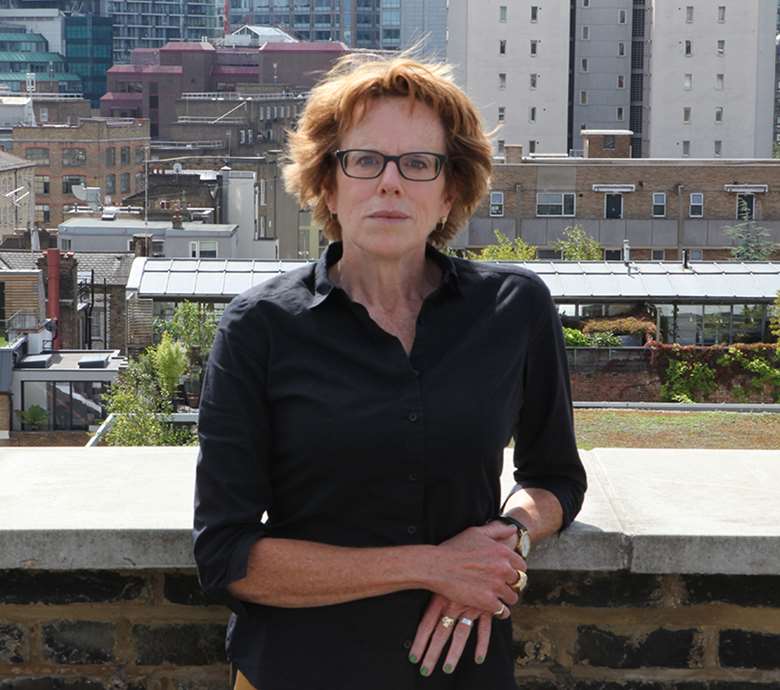A fearless campaigner: Polly Neate, Shelter chief executive
Derren Hayes
Tuesday, November 28, 2017
Derren Hayes speaks to Polly Neate, chief executive of homelessness charity Shelter.

After a career as a social affairs journalist, Polly Neate entered the charity sector in 2005 and in August took over from Campbell Robb as chief executive of homelessness charity Shelter. Neate joins the charity at a time when social housing and homelessness are high on the political agenda as a result of rising child poverty levels and the aftermath of the Grenfell Tower tragedy.
What have you focused on in your first four months in post?
I've spent most of the time getting to know Shelter, visiting frontline services, meeting staff and service users and understanding the complexity of our services. We have 12 hubs in most of the major English cities where we work with people at risk of becoming homeless. There's a telephone helpline and webchat service which provides support for issues linked to housing problems. We have drop-in services where people can get advice without an appointment - these are increasingly rare in the UK. We also have 51 high street shops and employ 1,185 staff.
I've been working on a new strategic plan, a big picture three-year plan, but with the freedom to change course if necessary.
How will the new plan reflect your priorities?
Rather than lots of stuff around vision, I want a clear idea of purpose - what are we here to do and for whom? I really pride myself on having a clarity of purpose. I believe everyone needs a sense of what the point is of what they are doing.
I really believe in speaking out and telling the truth to power - that's a big part of the way I do the job. Women's Aid is a fearless campaigning organisation and that's what Shelter is also.
Campaigning is really important to me and an essential part of charities' work. I very firmly believe that charities have an obligation to speak out for their beneficiaries and give them a platform. If a charity can't do that there's something wrong.
What experiences will you bring with you from your other jobs?
There's a considerable overlap between domestic abuse and homelessness. It was my experience at Women's Aid that made me aware of the fundamental nature of housing. Many women are made homeless due to domestic abuse and there's very little move-on accommodation, which prevents women leaving abusive relationships in the first place. Four out of five women that are street homeless are survivors of domestic abuse.
I don't think I'm a particularly good communicator, but I am confident expressing myself. As a journalist you get good at boiling complex things down to the key points.
Child poverty is rising. What impact will this have on homelessness?
The impact of welfare reform is frightening. There are signs that the government is starting to realise that the impact that austerity has had on families is pretty devastating. Living in temporary and inadequate housing - in one room, sharing a kitchen and moving schools frequently - has an appalling impact on children's resilience. It is the same for young people trapped in temporary accommodation - it has a massive impact on their further life chances. As Maslow's Hierarchy of Needs shows, stable shelter is one of the key foundations of life.
What key changes are needed to reverse the rise in homelessness?
The biggest issue has been the freeze in housing benefit. Most people are made homeless because they lose their private housing tenancy and that's largely because of the freeze on housing benefit. It's increasingly common for housing benefit tenants to be unable to afford private sector rents. We are calling for the government to end the freeze on housing benefit.
There's nothing wrong with trying to simplify the benefit system, but some aspects of universal credit - such as the six-week delay in receiving payments and paying rent directly to tenants and not landlords - are making it harder to get tenancies.
Are more radical solutions to the housing problem needed?
I don't think solutions need to be that radical - we need to stop tipping people into homelessness. If I had a pound for every time someone has told me that housing is a complicated issue I'd be rich. It's not looking that complex to me - the solution is relatively straightforward: we need to lower the cost of homes. At the moment it is a market that works well for some but if you have no money you have no choice.
Councils have quite limited powers - it's down to the government to make it easier for councils to provide sufficient affordable housing.
Could the Grenfell Tower disaster be the catalyst for change in housing policy?
Grenfell has shone a light on the total lack of options available for people in London, and the lack of voice for social housing tenants. It is up to organisations like Shelter to make sure the issue can't be buried. We have a responsibility to ensure that collective recognition of the problems happens.
Ultimately, unless there is more affordable housing and a supportive social security system, we're going to continue to have families and vulnerable young people struggling with homelessness. Housing is the bedrock of society: it is what enables young people and families to have successful healthy lives.
POLLY NEATE CV
- August 2017 - chief executive, Shelter
- February 2013-August 2017 - chief executive, Women's Aid
- July 2005-January 2013 - executive director of external relations at Action for Children
- 1990-2005 - journalist, Community Care magazine; eight years as editor




